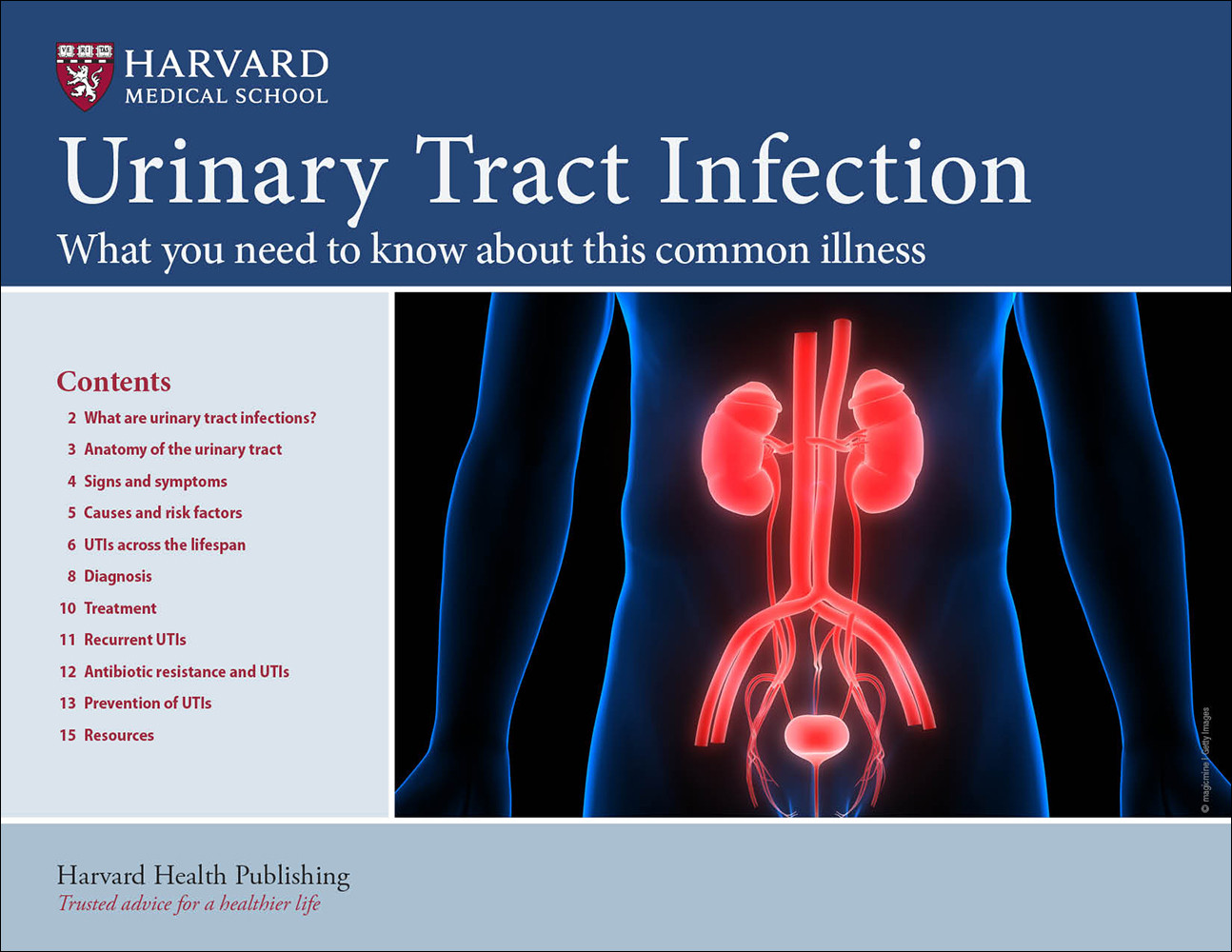Older women
Menopause lowers estrogen levels, which changes the bacterial populations in the reproductive and urinary tracts and thins the lining of the urethra. These changes may increase risk for UTI. Older women also are more likely to have chronic medical conditions that could increase risk, such as diabetes, dementia, limited mobility, or urinary incontinence.
Several studies have shown that the use of vaginal estrogen cream reduces risk, and some physicians recommend it. These creams may help because estrogen strengthens the lining of the urethra and bladder and also makes the genitourinary area more acidic, which discourages the growth of E. coli and other bacteria.
Older women are more likely than younger ones to be admitted to a hospital or long-term-care facility, where they may face urinary catheterization, a risk factor for UTI.
Antibiotic treatment for older women depends on whether the infection is uncomplicated or complicated. Women with complicated UTIs often have other risk factors, such as poorly controlled diabetes or urinary tract abnormalities, which decrease the odds of successful treatment. Therefore, complicated UTIs frequently require longer courses of antibiotics than uncomplicated cases do.
Older men
Although the risk of a UTI is much lower for men than for women, men’s risk gradually increases after about age 60. Rates in men 80 and older are similar to rates in women of the same age. UTI is the most common bacterial infection in older men, and hospitalizations are more common in older men as well, though complications and death are rare.
There are many risk factors for UTIs among older men, including
- diabetes
- incontinence
- dementia
- limited mobility
- benign prostatic hyperplasia (BPH), a swelling of the prostate gland (which is below the bladder) that can obstruct normal urine flow.
Other structural and functional issues also can affect men’s urinary tracts, though BPH is the most common.
When an older man with no history of urinary catheter use or previous UTI develops a UTI, experts sometimes recommend an evaluation of the entire urinary tract to rule out any structural or functional problems. This usually involves ultrasound, a CT scan, or both. Other than BPH, men can have kidney stones or a condition called urethral stricture, in which the urethra has been scarred and narrowed (usually with no identifiable cause).
Antibiotic treatment for older men with a UTI usually lasts seven to 14 days, though newer studies suggest that less severe UTIs may be cured with shorter treatment. In those with a kidney infection, hospitalization may be necessary if the infection has spread to the blood, a dangerous condition known as sepsis.
Sometimes a UTI that is not cured by antibiotics can invade the prostate, leading to prostatitis, an infection that also may have other causes. Even with antibiotic treatment, bacteria can continue to survive in the prostate, so it is important to identify a prostate infection and get appropriate antibiotic treatment, which is usually given for four to six weeks.












